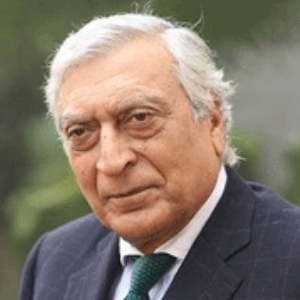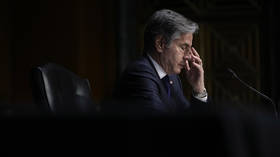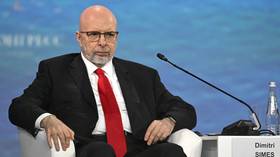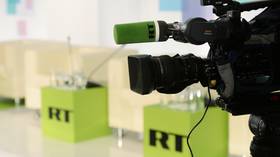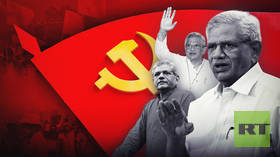Why the world’s largest democracy isn’t buying ‘freedom of speech’ US-style
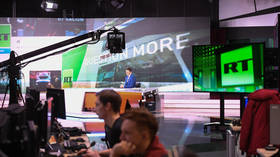
The recent announcement by US Secretary of State Antony Blinken of additional sanctions against Russian media, including Rossiya Segodnya, its subsidiaries and RT, seems timed for the US presidential election, which is only two and a half months away.
These media outlets have been accused of spreading “Russian government propaganda and disinformation,” of engaging in “covert influence activities aimed at undermining American elections and democracies,” and of functioning as a “de facto arm of Russia’s intelligence apparatus.”
To dispel the impression that these new bans are dictated by domestic political calculations, Blinken tried to project Russian media as a global problem by alleging that these outlets meddle in the sovereign affairs of countries around the world in coordination with Russian intelligence services with a view to manipulating elections not only in the US, but around the world.
It is difficult for outsiders to believe that ‘Russian disinformation’ can so easily influence US elections, as American democracy has strong roots and cannot be destabilized by foreign propaganda; surely it is not so fragile.
People realize that in democracies, elections are won or lost on national and local issues, the understanding the electorate has of the positions of the contending parties and individuals, the influence of the media, the political awareness of the electorate, the perception of the voters regarding how the platforms of candidates could affect their own well-being, and so on. Quite often, the final results are not known until the actual voting takes place. The idea that foreigners could manipulate elections in the world’s oldest democracy seems far-fetched.
Blinken asserts the following: RT “possesses cyber capabilities” for “covert” operations around the world. It “launders information operations through unwitting Americans to covertly disseminate Kremlin-produced content and messaging to the American public.” Russia deploys similar tactics “around the world,” he claims, citing Moscow’s allegedly running of the online platform African Stream “across a wide range of social media platforms” as an example. The platform, Blinken says, claims to give a voice to all Africans both at home and abroad, but “in reality, the only voice it gives is to Kremlin propagandists.”
As a counter, the US, according to Blinken, is building a “more resilient” global information system “where objective facts are elevated and deceptive messages gain less traction.” The US, he adds, is promoting policies and programs that protect and foster greater civic and media literacy so that people can better distinguish fact from fiction. Through the State Department Global Engagement Center, the US is coordinating with other countries to counter attempts by governments and non-state actors to manipulate information.
To oppose “Russian weaponization of disinformation to subvert and polarize free and open societies in every part of the world,” the US, UK, and Canada, in Blinken’s words, are launching a “joint diplomatic campaign to rally allies and partners around the world” to join them in addressing the threat posed by RT and other “machinery of Russian disinformation and covert influence.”
Blinken went on to say that US diplomats around the world were instructed to share evidence gathered on RT’s expanded capabilities and the ways it is being used to target individual countries and the global information ecosystem. While each government will decide how it responds to this, the US urges every ally and partner to start by “treating RT’s activities as they do other intelligence activities by Russia within their borders.”
The US, Blinken claims, respects and champions freedom of expression, even when it comes to media outlets that “wittingly spread government propaganda,” and it will continue to lead the world in “defending and promoting media freedom.” But it will not stand by as “RT and other actors carry out covert activities in support of Russia’s nefarious activities.” The US, he adds, will “continue to respond forcefully to Moscow’s playbook of aggression and subversion, one that includes invading sovereign nations, fomenting coups, weaponizing corruption, carrying out assassinations, meddling in elections, and unjustly detaining foreign nationals.”
Much of what Blinken claims is highly debatable to put it lightly, and contradicts America’s own policies and actions on the global level.
The US treats freedom of expression as a core value and considers dissent to be an intrinsic part of democracy. But in the case of sanctioning Russian media and the legal curbs imposed on Americans appearing on RT who criticize US government policy on the Ukraine conflict and the war in Gaza, for instance, the Biden administration is violating its own declared values. As a further blow to freedom of speech, META, no doubt under pressure, has now barred Russian media, including Sputnik media on its platforms. Others will see all this as other instances of double standards.
When non-Western countries place curbs on their own media or suppress dissent, the US is quick to condemn this as a breach of democracy. Even in situations of breaches of law and order, rioting, and violence, when curbs are temporarily placed on social media and the internet, the US is quick to denounce them.
The US does not seem to be mindful of the contradiction between the outright steps it has just announced against RT, which violate the principle of freedom of expression, and limited restrictions that other countries take based on what they need to do domestically to curb social unrest or violence, which the US routinely condemns.
India has experienced this and has protested this interference in its internal affairs.
The West largely controls the flow of information globally. It can create and control narratives at the international level. Many in the rest of the world have felt vulnerable to the power of the West to disseminate distorted narratives about them. As far back as the 1970s, the developing world tried through UNESCO to promote a new international information order, but failed.
Today, some major non-Western countries are trying to break into this quasi-monopoly on global information flows, but are handicapped. The West has the advantage of the English language, its printed media and news agencies have long exercised global domination, the US also controls the social media space with its audiences worldwide. Russian President Vladimir Putin said in an interview with American journalist Tucker Carlson that Russia could try to promote its own narratives, but this would require an enormous investment with uncertain results, as this space is dominated by the West.
It is widely believed that the CIA has connections with the US mainstream and social media, and Hollywood as well. The allegations that it uses journalists abroad for its work have in the past have been the subject of congressional scrutiny. The capacity of the National Security Agency to intercept communications worldwide, including illegal tapping of communications of even allies, is well established.
The role of the US media, its democracy promotion organizations, and its intelligence agencies in promoting regime change in countries is widely accepted as a reality. A recent op-ed in the Financial Times by the heads of the CIA in the US and MI6 in the UK was a public display of their role in policy-making in the Ukraine conflict, for instance.
In India’s case, Russian media has not interfered in the functioning of our democracy or our elections, nor have we been victims of Russian propaganda or disinformation. In fact, Russian media has limited access to the Indian media space – whereas the Western media, especially that of the US and UK, dominates the dissemination of international news in it.
Even if some European countries also allege that Moscow interferes in their elections, there is no evidence that Russian media linked to Russian intelligence seeks to manipulate the outcome of elections “worldwide.” It is certainly not the case with India, the world’s largest democracy.
The US and the West continue to dominate the global information system, as India has experienced at its own cost. The New York Times, Washington Post, Wall Street Journal, Financial Times, Economist, Le Monde, Foreign Affairs Journal, BBC, France 24, DW, human rights organizations, and organizations that promote democracy and religious freedoms are all politically oriented against the present Indian government and spread distorted information about developments in India. Even official US State Department reports do this.
India would therefore have questions about the US’ efforts to build “a more resilient global information system, where objective facts are elevated and deceptive messages gain less traction.” The US missions in India are tutoring local journalists on ‘fact-checking’. This fact-checking should be primarily focused on what their own media says about India.
It would be ironic if the UK and Canada were to raise issues pertaining to Russian media with India. They harbor people who India considers to be terrorists, those who question India’s sovereignty and territorial integrity, attack our missions, and threaten to kill our leaders and our diplomats, among other things. India has no such problem with Russia.
It is not likely that the US would raise the issue of RT’s operations in India directly with the Ministry of External Affairs, as they would already know what India’s response would be. This is not a bilateral issue between the US and India, and should not be treated as such. The Global South will almost certainly be largely unresponsive as well.
The statements, views and opinions expressed in this column are solely those of the author and do not necessarily represent those of RT.
